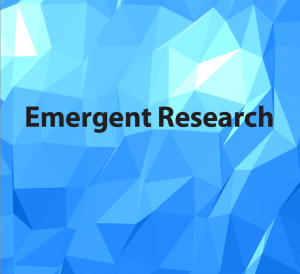Presented By: University Library
Nontrivial Pursuit: Exploring the Potential of Compound Digital Objects to Support Interactive Scholarly Communication Services and Record Continuity

Join us for a talk by Allen Flynn, assistant professor at the U-M Medical School in the Department of Learning Health Sciences.
Scholarly communication is generally undergoing rapid change. In part, this is because the forms of scholarly communication are diversifying as its production expands and accelerates. Scholars are starting to publish the materials of research, e.g., data sets, analytic code, and intermediate results. These types of artifacts complement published monographs and journal articles. Besides, communication of research results can take the form of scholarly code. In some cases, results arrive first as machine-executable models, which are only later reiterated and described in natural language for people to read.
These changes in scholarly communication are impacting the global advancement of biomedicine. They have sparked conversations and debates about the replicability of scientific experiments and studies. They challenge us to understand more deeply the value of integrity and continuity for the biomedical scholarly record, in particular. A record which, for many decades, has been used to disseminate evidence that is needed to advance medical practice. Indeed, for all professions, making published scholarly code findable, accessible, interoperable, and reusable (the FAIR principles) seems necessary to advance practice through mass action.
Flynn's academic teamwork generally focuses on the research and development of technical knowledge infrastructure for managing and deploying computable knowledge throughout health systems. Current team projects include the Knowledge Grid, an open source prototype platform and testbed for exploring ways to mobilize computable biomedical knowledge and thereby improve human health and safety. He holds a Doctor of Pharmacy degree and a Doctorate in Information Science, both from the University of Michigan.
Scholarly communication is generally undergoing rapid change. In part, this is because the forms of scholarly communication are diversifying as its production expands and accelerates. Scholars are starting to publish the materials of research, e.g., data sets, analytic code, and intermediate results. These types of artifacts complement published monographs and journal articles. Besides, communication of research results can take the form of scholarly code. In some cases, results arrive first as machine-executable models, which are only later reiterated and described in natural language for people to read.
These changes in scholarly communication are impacting the global advancement of biomedicine. They have sparked conversations and debates about the replicability of scientific experiments and studies. They challenge us to understand more deeply the value of integrity and continuity for the biomedical scholarly record, in particular. A record which, for many decades, has been used to disseminate evidence that is needed to advance medical practice. Indeed, for all professions, making published scholarly code findable, accessible, interoperable, and reusable (the FAIR principles) seems necessary to advance practice through mass action.
Flynn's academic teamwork generally focuses on the research and development of technical knowledge infrastructure for managing and deploying computable knowledge throughout health systems. Current team projects include the Knowledge Grid, an open source prototype platform and testbed for exploring ways to mobilize computable biomedical knowledge and thereby improve human health and safety. He holds a Doctor of Pharmacy degree and a Doctorate in Information Science, both from the University of Michigan.